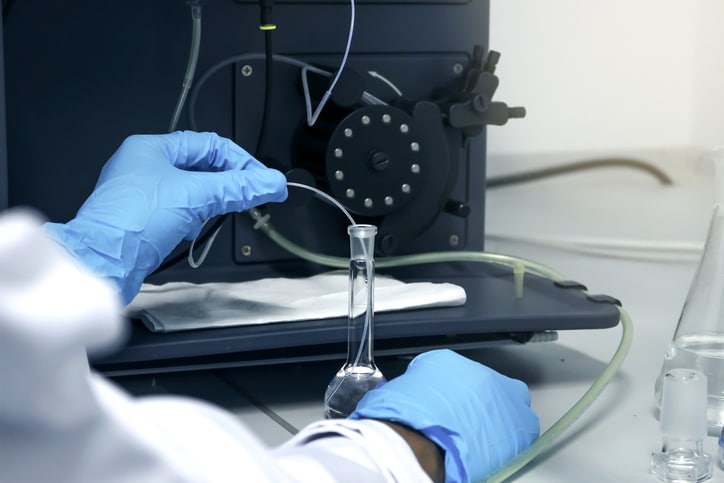
HPLC stands for High-Performance Liquid Chromatography – a technique for separating organic compounds in order to analyze them. Today, it can be used for separation, identification, purification, and quantification. Due to its accuracy and precision, HPLC has become a popular method of examining samples across many industries.
HPLC is frequently used in pharmaceutical research, as well as the health and food industries for analyzing the nutritional benefits of different foods and enforcing food safety standards. With the right training, you’ll be equipped to work in professional laboratories across various fields. Read on for a closer look at where your career can take you.
1. The Use of HPLC in Food Production
When it comes to the food industry, HPLC is a valuable technique for ensuring consumer safety. Students in an HPLC program will learn how to apply this technique to identify, quantify, and purify the individual components of a mixture. In the context of the food industry, these processes can be used to detect chemical compounds that are commonly used in agriculture.
For that reason, an HPLC lab is responsible for testing food for pesticides and other chemicals, including:
- Preservatives
- Sweeteners
- Colourants
- Antioxidants
- Artificial flavourings

Apply your HPLC training to evaluate the quality and safety of food products
While chemicals in agriculture and food production have certain uses, some of those chemicals are potentially harmful to humans. In particular, chemical residues in animal products, such as dairy or meat, must be monitored because of their levels of toxicity. In those cases, HPLC methods can be used to protect consumers by quantifying the concentration of chemicals in food products, and ensuring that they don’t exceed the recommended levels.
2. Environmental Research
Environmental concerns are some of the biggest challenges facing the modern world. From global warming to pollution, there are numerous areas of scientific research designed to improve our understanding of climate change. By separating and analyzing organic compounds, HPLC can be used to test for the presence of different organisms in our ecosystems. These results can determine how changes in temperature and climate are affecting the natural world.

HPLC can be used to analyze compounds in our ecosystems
Additionally, HPLC has become increasingly used to analyze environmental pollution levels. Polluted samples are usually a complex mixture of different compounds that require precise techniques for separation. When working with those samples HPLC is an effective technique for identifying and quantifying the presence of different compounds in the air, soil, waste, and drinking water. In the case of soil analysis, HPLC can help researchers to determine:
- The content of the soil
- Whether soil has been contaminated with toxic chemicals
- Whether the land is safe for human use
- Appropriate clean-up methods
With HPLC training, students will be able to take an active role in the work of environmental research organizations to inform our responses to climate change.

Polluted soil samples can be separated using HPLC
3. Explore the Pharmaceutical Industry With HPLC Training
The pharmaceutical industry is tightly regulated, with legislation to ensure the safety and quality of drugs that are distributed. HPLC is one of the most common methods around the world for determining the purity of a drug. As the pharmaceutical industry is subject to numerous compliance laws, HPLC is a reliable technique that provides sufficient precision to meet industry standards.
HPLC is a highly efficient method of drug analysis that reduces the waste of expensive drugs and minimizes the losses to manufacturers. Historically, the technique has been used for effective analysis of alkaloids, antibiotics, steroids, and more. Since HPLC can separate compounds, it can be applied during the manufacturing process, as well as to the final product. In separating the different compounds, HPLC provides a useful starting point for manufacturers in the development of new drugs.
Are you interested in taking HPLC courses?
Contact the Academy of Applied Pharmaceutical Sciences today!



